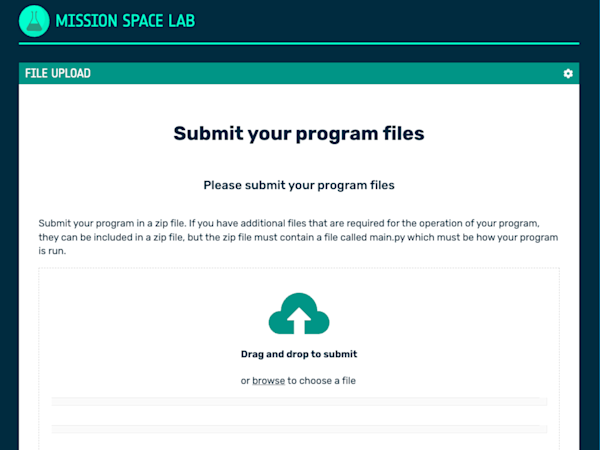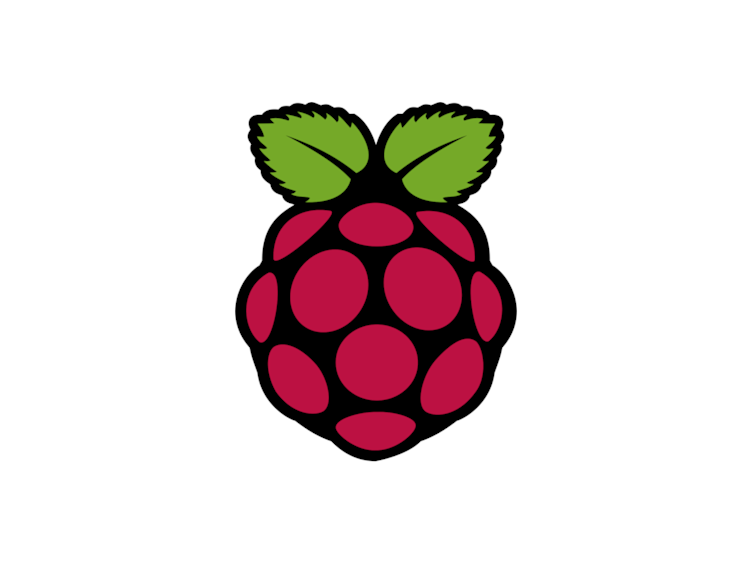Astro Pi Replay Online

What is it?
Astro Pi Replay Online, a browser-based app for simulating the Astro Pi computers aboard the International Space Station (ISS), is designed to help you write and test your Astro Pi Mission Space Lab submission. Run your Python program directly in the browser in an ISS-like environment (including the picamzero, exif, opencv, and sense_hat libraries), and view the results — all without installing any additional software.
When your program tries to capture photos and SenseHAT data using the picamzero and sense_hat libraries, the tool feeds it images and data captured by a previous Astro Pi Mission Space Lab team. This provides a perfect testing environment to make sure your program runs correctly with realistic inputs before you send it to be run on the actual Astro Pi computers aboard the ISS.
The main benefits to using the tool are:
No need for any hardware — your program can capture photos and SenseHAT data using the picamzero and sense_hat libraries
Includes all Python libraries available on the Astro Pis aboard the ISS
No complicated setup — just open your browser and go to Astro Pi Replay Online
How to use it?
To get started straight away, follow the steps below. We recommend enabling app data saving and offline mode.
Navigate to the Astro Pi Replay Online website (rpf.io/replay). The homepage should look like this (see image right).
Submit your main.py file (or a zip file containing your main.py file and other modules) by dragging and dropping it into the box, or clicking the box and selecting your file.
Click the ‘Run’ button to start running your program. The tool will download, install the necessary files, and give you a progress bar indicator.
Once your program has been executed (run), you’ll see a screen showing its outputs (the results of your code). These include the result.txt file (a summary of your program’s results), some photos, the program logs (a record of what happened while your code ran), and the program directory (the folder containing your program files).
You can download a zip file of all your program’s outputs by scrolling to the bottom and clicking the ‘Download Outputs’ button.

Allow saving app data to your device
The photos replayed are high quality and so take up a lot of space. To make things quicker and use less internet data (bandwidth), we recommend that you allow saving app data to your device. To do this, go to the Astro Pi Replay Online site and click the cog wheel icon at the top right of the ‘File Upload’ window, as shown in the image below.
Enable offline mode
How you turn on offline mode depends on the device and browser you’re using. To help, we’ve made the videos below:
-
Mac with Chrome
Mac / Chrome

-
Mac with Firefox
Mac with Firefox

-
Mac with Safari
Mac with Safari

-
Raspberry Pi OS with Chromium
Raspberry Pi OS with Chromium

-
Raspberry Pi OS with Firefox
Raspberry Pi OS with Firefox

-
Windows with Chrome
Windows with Chrome

-
Windows with Edge
Windows with Edge

-
Windows with Firefox
Windows with Firefox

Frequently asked questions
Which devices can I use the Astro Pi Replay Online app on?
The replay tool is primarily targeted towards desktops, but it can also run on Android, iOS, and iPadOS
Which browsers are supported?
On desktops, the latest versions of Chrome (Chromium), Edge, and Firefox are all supported
On Android, ensure Chrome is up to date
On iPads and iOS, ensure you are using an up-to-date version of Safari
How much space is needed for offline mode?
The tool stores 10 minutes worth of large, high-quality images captured by a previous Mission Space Lab team, taking about 800MB of space
How much memory (RAM) is required?
The tool needs at least 1250MB of memory (RAM) available — we recommend having around 2GB of memory free.
I am using the Astro Pi Replay Thonny plugin and cannot see the latest images, what should I do?
Make sure you’re using the latest version of astro-pi-replay (1.3.1). To check this in Thonny, go to Tools > Manage packages… and search for astro-pi-replay. If an update is available, click the Update button, and the next time you run a program using the replay tool the latest images will be automatically downloaded.
I have updated astro-pi-replay in Thonny but no new images were downloaded, what should I do?
When you run a program using the replay tool in Thonny it should download the images automatically. If this doesn't work, try deleting the .astro_pi_replay folder in your home folder, re-open Thonny, and re-run your program using the replay tool plugin.